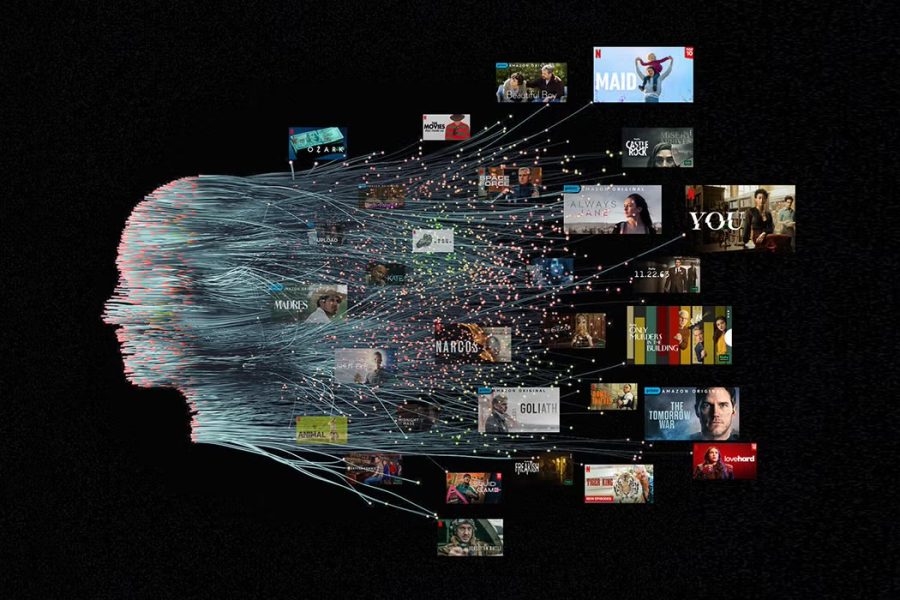As mass media grew in popularity in the 1940s, Theodor W. Adorno and Max Horkheimer warned that culture was becoming into an enterprise. From movies to radio, culture was being industrialised to remove typical valuable commodities, leaving no more a place for art or critical thought. This criticism, which was mostly expressed in their work Dialect of Enlightenment, claims that the culture business is essentially a component of the dominance structure, intended to control society and preserve capitalist status. However the question is, how does thus 1940s critique translate to our world of global streaming?
The Algorithmâs Formula
Through standardisation and commodification, the Culture Industry gains its hegemony. It is described as “the commodification of art forms which now succumbed to the production methods and sales techniques of mass-production” in the presentation slides. Adorno and Horkheimer observed this in unoriginal style of popular music and Hollywood cinema. Today, it can be found in: Streaming algorithms: Services such as Netflix and Spotify employ data to produce ‘safe’, predictable content that ensures high viewership. The Homogenisation of Pop: Contemporary pop music frequently follows strict structural conventions and production styles. Adorno claimed that the pursuit of profit overrides any commitment to genuine artistic innovation or risk, as evidenced by the constant stream of interchangeable reboots, sequels, and cinematic universes.
False Satisfaction
The psychological impact of the Culture Industry is arguably its most sinister element. “Makes the’mass’ passive and keeps it controlled through false sense of satisfaction” is emphasised. Rather than offering genuine freedom, commercial entertainment provides amusement, which just strengthens the body to handle the labour process.
The Distraction Trap: This “false satisfaction” is now exhibited by the constant consumption of short-form, bite-sized information that provides rapid gratification (e.g., TikTok, short-form video). This continual stimulation is a “escape, but not, as it claims, escape from bad reality but from the last thought of resisting that reality” (Horkheimer and Adorno, 2002, cited in Perlego, 2023). It ensures that there is “no revolution and resentment despite everything” by appeasing the public.
Diminished Capacity: The capacity to experience is shrinking in a digital world” as cultural consumption turns into a simple, passive habit. Immediate approval (or disapproval) takes the place of critical thought, and depth is given up for quick, superficial entertainment.
Enlightenment as deception
The Culture Industry is ultimately seen by Adorno and Horkheimer as anti-enlightenment. The goal of true enlightenment was to promote reason and self-sufficient, independent people. But the very rationality and technology meant to free the individual are used by the Industry to shackle them. As Horkheimer and I have remarked, the culture industry has an anti-enlightenment impact in which enlightenment, the rising technical dominance of nature becomes mass deceit and a tool of fettering consciousness. It affects the growth of self-sufficient, independent people who make their own conscious decisions and judgements. (Adorno, 1992).
The internet, smartphones, and global distribution networks are examples of modern tools that are not primarily used for empowerment or education. Rather, they ensure ideological conformity and consumer dependence by manipulating society. The ‘well-being’ promised by the never-ending stream of entertainment is precisely the “substitute gratification” that keeps us in servitude.


The Culture Industryâs Modern Grip
This piece cleverly updates Adorno and Horkheimerâs culture industry theory for todayâs digital age, linking streaming algorithms and TikTokâs short-form content to the old evils of homogenization and false satisfaction. It highlights how profit-driven, formulaic media traps audiences in mindless consumption, killing critical thinking and resistance. The argument that modern techâmeant to empowerânow enforces conformity is sharp and eye-opening, reminding us how “entertainment” can quietly become a tool of control.